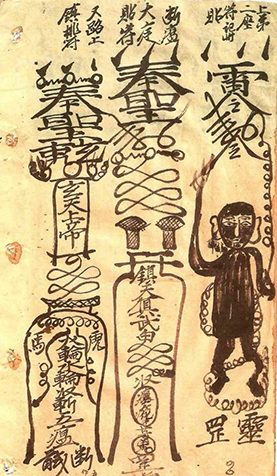
This project is about forms of powerful writing in Chinese religious and political life. By powerful writing is meant writings and inscriptions that congeal and exude power that are recognised by their audience as far more forceful than ordinary writing. These writings and inscriptions usually appear in well-defined forms and in well-defined social contexts, where figures or institutions of authority deem it appropriate and necessary to resort to writings and inscriptions to exert power. Even though these writings and inscriptions contain words that carry semantic meanings, Dr Chau wants to argue that they are not merely communicative acts (à la Habermas); rather, their power is more significantly derived from the form and context of their presentation, and they act upon, rather than simply communicate to, their audience. Inspired by John Austin’s concept of speech acts, Dr Chau calls these forms of powerful writing text acts. He uses ‘audience’ rather than ‘reader’ to describe the target of text acts because people do not so much read the contents of the text as recognise and feel its performative impact. He is in the process of writing a monograph on text acts tentatively entitled Text Acts: The Textographic Fetish in Chinese Religion and Politics, and has already published several articles on the topic.
